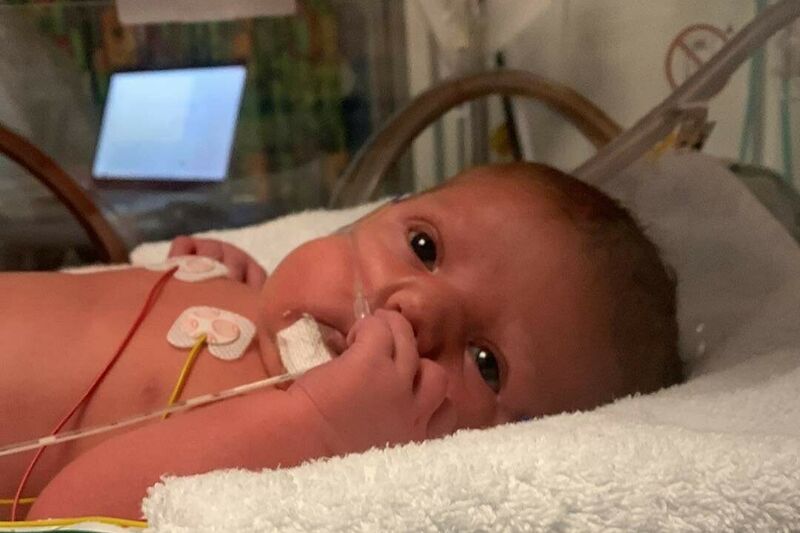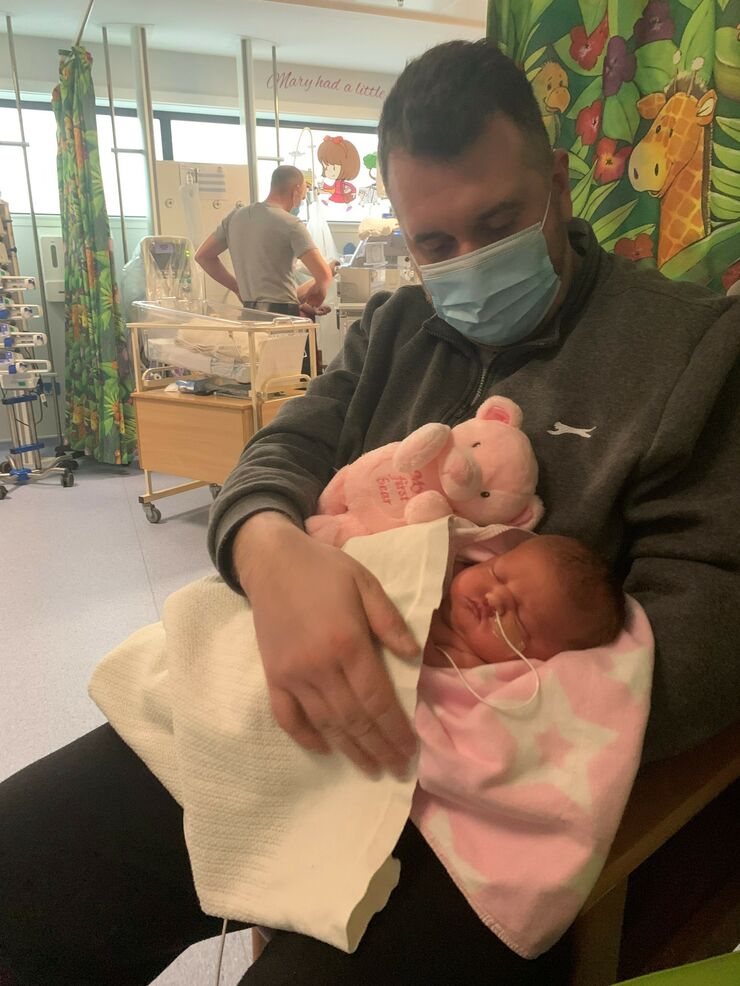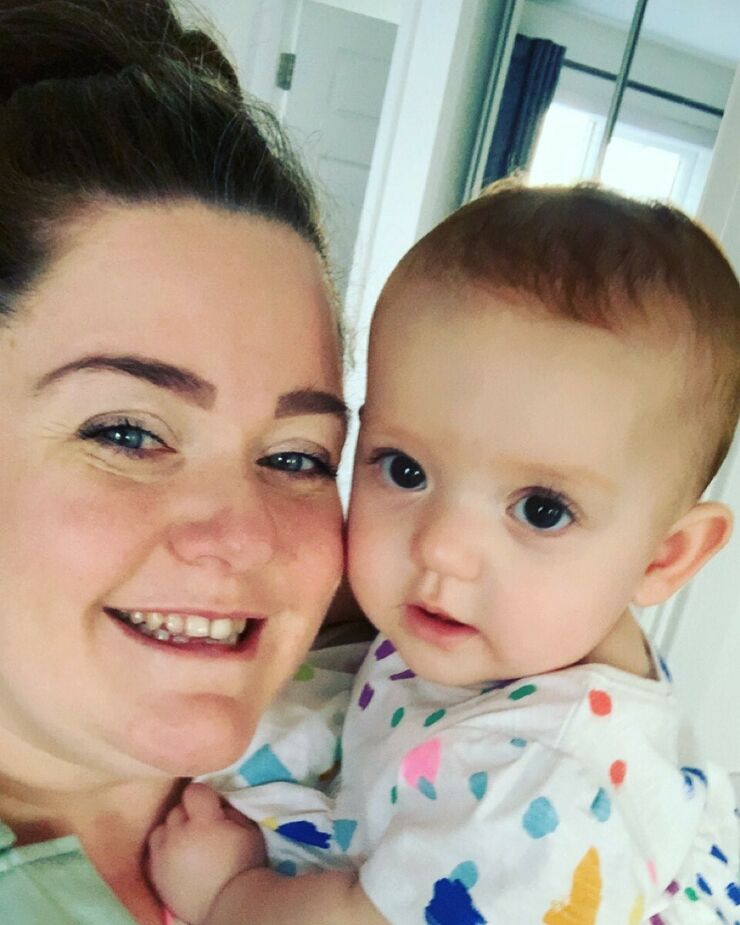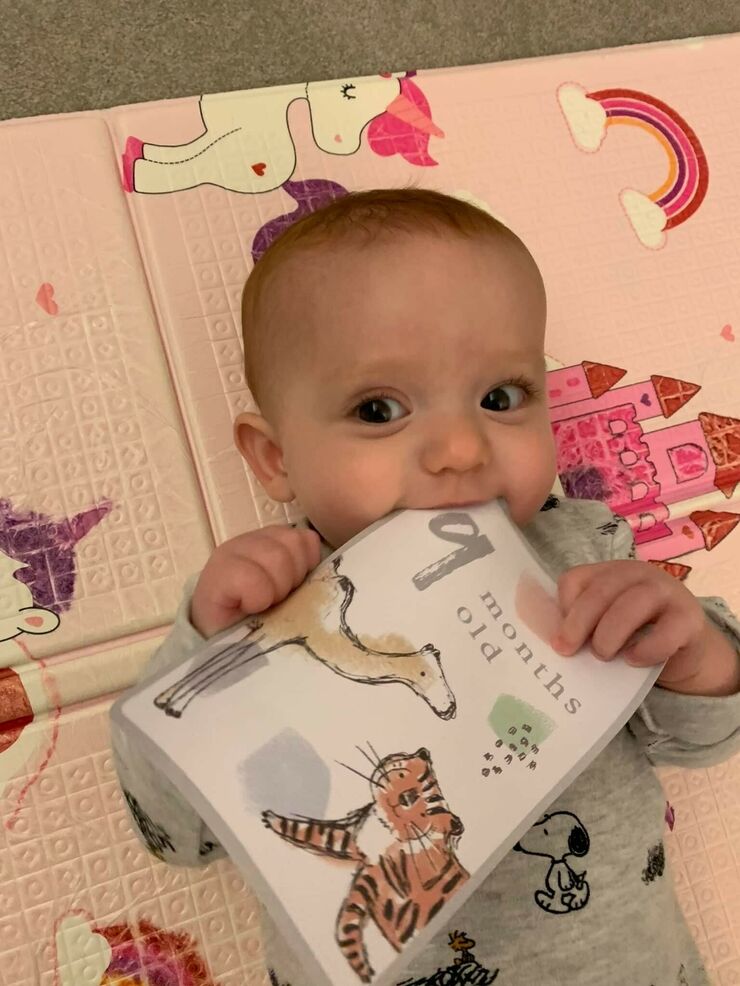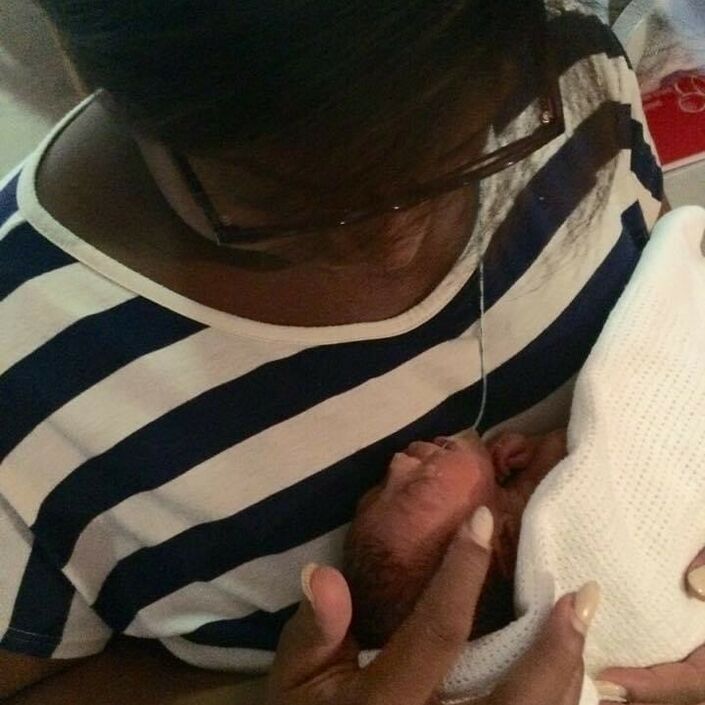We found out we were pregnant back in June 2021. We had a fairly standard start to the pregnancy – a little bit of nausea, but nothing really untoward.
However, when we got to our 12-week appointment, we were very quickly told we were going to be consultant-led. This was because I was hospitalised and put on oxygen when I had Covid-19 in 2020.
This alongside with my weight and the fact that my mum was pre-eclamptic in her pregnancies, triggered me onto a red pathway. My baby was growing at a rate that just seemed a little bit unnatural - she was very big.
I ended up testing positive on the glucose test at 28 weeks. I had gestational diabetes and was told that I needed insulin straight away because it was that bad and they couldn't get my sugars under control. We had regular growth scans and she measured well above the hundred and 10th percentile the whole pregnancy.
I ended up being signed off from 21 weeks as I was completely unable to do my job - I'm a nurse, so I was meant to be on my feet all day. From 28 weeks, I was on insulin six times a day. When we went for our 32-week scan, my baby was measuring at six pounds and six ounces.
The consultant had said that they were going to let me go to 37 weeks initially. However, they then asked me to make the decision for the baby to be born at 35 or 36 weeks, which just threw me and my husband massively because we'd seen a lot about prematurity.
We asked lots of questions, but nobody could give us a solid answer. They were both risky options but if we waited to full-term, we were told the chance of a stillborn was going to be really high. We ended up opting for 35 weeks.
